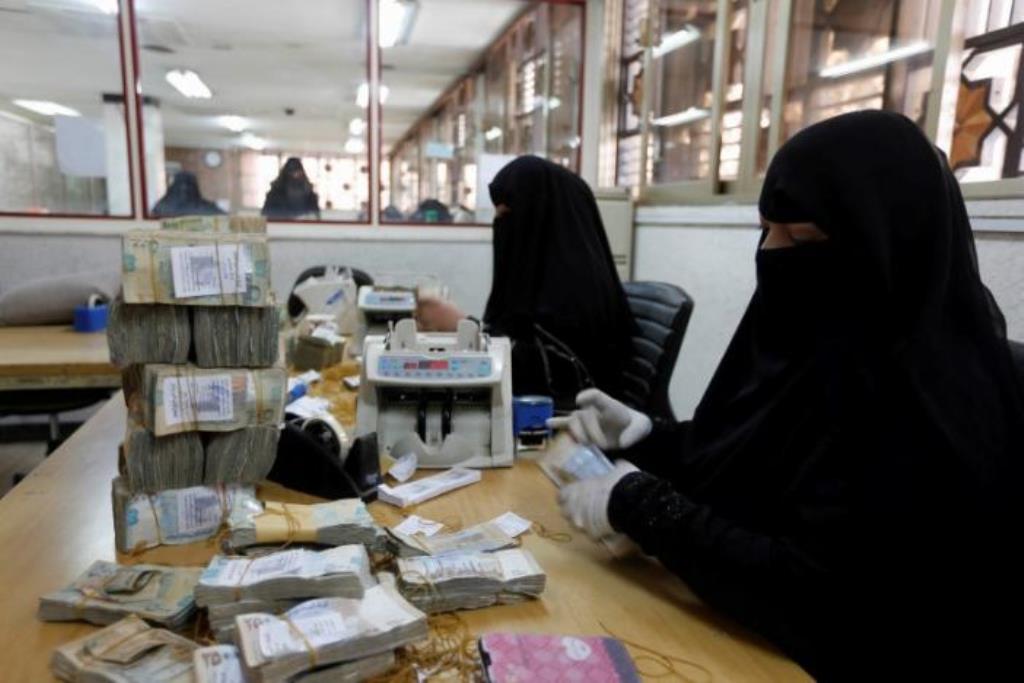Aden – Yemeni businessmen are being forced to transfer their money to the Yemeni Central Bank (YCB) under the control of the Houthis and forces of former president of Ali Abdallah Saleh.
Sources told Asharq Al-Awsat newspaper that the insurgents required the businessmen to supply 140 million dollars in return of receiving reduction on customs and taxes.
The insurgents also offered them an exchange rate of 251 Yemeni Rial for dollar, whereas the market price is over 300 YER.
The sources, which preferred to remain anonymous, said that Houthis’ efforts were successful now that businessmen and merchants agreed to transfer their money to the YCB on the condition of release of cambists and money-changers who were arrested earlier.
Yemeni economy expert Mustafa Nasr said that the central bank used all available sources to pay the salaries of the Yemeni employees adding that the bank won’t be able to continue to pay in case no more bills are printed.
Nasr said that the justifications given by governor of the central bank Mohammed bin Hammam are political and not economic.
The expert said that Hammam’s request for moving the central bank’s headquarters is merely political.
Nasr clarified that Hammam raised many issues including his claim that the central bank is neutral, when in reality the bank is dealing with Houthis militias.
According to Nasr, Hammam is using checks that are signed by the acting ministers assigned by Houthis, rather than ministers of the legitimate government.
The expert stressed that central bank’s governor is relying on the aid of the international community, especially the World Bank, by requesting an amount of 750 million dollars for the social care fund.
He explained that the amount will help in limiting the bank’s crisis and the bank will have it as a reserve to be used in various financial exchanges.
Nasr said that the governor didn’t mention the catastrophic results of the bank’s policies that led to the 26 billion dollars national debt.
Insurgents in Sana’a pressured local merchants to pay millions of riyals for the central bank to help limit the effects of the liquidity crisis.
